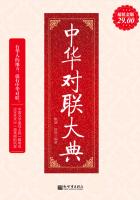Political Economy
I.Mill's Starting-Point
Mill's decision to abandon 'ethology'in favour of political economy,had one clear advantage.The function of a philosophical pioneer in the vast and vague region indicated by the new science was beset with difficulty.It was doubtful whether the proposed science could be constructed at all;and any conclusions attainable would certainly have belonged to a region remote from specific application to the questions of the day.Political economy offered a field for inquiry with a narrower aim of easier achievement.The greatest problems of the time were either economical or closely connected with economical principles.Mill had followed the political struggles with the keenest interest:he saw clearly their connection with underlying social movements;and he had thoroughly studied the science or what he took to be the science --which must afford guidance for a satisfactory working out of the great problems.The philosophical Radicals were deserting the old cause and becoming insignificant as a party.But Mill had not lost his faith in the substantial soundness of their economic doctrines.He thought,therefore,that a clear and full exposition of their views might be of the highest use in the coming struggles.Hence arises one broad characteristic of his position.Mill was steeped from childhood in the principles of Malthus and Ricardo.In that capacity he had been a champion of their views against the followers of Owen.But he had come to sympathise with the aims,though he could not accept the theories,of the Owenites.Hence he was virtually asking how,given Ricardo's premises,are we to realise Owen's aspirations?The groundwork of argument,however,remained throughout.Though a more favourable estimate of Socialism was introduced in one chapter of his book,as I have already noticed,no corresponding changes were made in the remainder.
The Political Economy speedily acquired an authority unapproached by any work published since the Wealth of Nations.
In spite of many attacks,it still holds a position among standard textbooks;and in the case of textbooks,fifty years may be counted as remarkable longevity.During the first half of that period,a large school looked up to Mill as an almost infallible oracle.If in the later half that belief has vanished,we ought to recognise merits,sometimes overlooked by his assailants.The most undeniable is the singular skill of exposition.Mill had an admirable sense of proportion;each topic is taken up in intelligible order and treated with sufficient fulness;general principles are broadly laid down and clearly illustrated;and applications to actual cases are sufficiently indicated,without those superfluous digressions into minuter details which often entangle or break the main thread of an argument.The style is invariably lucid,and Mill,while free from arrogance and singularly courteous to opponents,wears his magisterial robes with the dignity of acknowledged authority.Whatever fallacies lie beneath the equable flow of didactic wisdom,we can understand what was the charm which concealed them from early readers.The book seemed to be a unique combination of scientific reasoning and practical knowledge,while the logical apparatus,so harshly creaking in the hands of Ricardo,not only worked smoothly but was in the hands of one whose opposition to 'sentimentalism'was plainly no cynical mask for coldness of heart.
Mill states his aim in the preface.He wished to expound the doctrine of Adam Smith with the 'latest improvements.'But he would take Smith for his model in combining economics with 'other branches of social philosophy.'Smith,he says,by never losing sight of this aim,succeeded in attracting both the general reader and the statesman.Mill certainly achieved a similar result.If he did not emulate Smith's wide researches into economic history,and had not Smith's curious felicity of illustration,he took a comprehensive view of the great issues of the time,and spared no pains in filling his mind with the necessary materials.His surprising power of assimilating knowledge had been strengthened by official experience.No one had a more vigorous digestion for blue-books,or --what is perhaps rarer --less desire to make a display by pouring out the raw material.
Although Mill's work upon pure political economy,lies mainly beyond my province,it illustrates one important point.Mill speaks as one expounding an established system.The speed with which the book was written shows that it did not imply any revision of first principles.Mill is working in general upon Ricardo's lines,in whose 'immortal Principles,'for example,he finds the first philosophical account of international trade.(2)He assumes too easily that a mere modification of old doctrines is needed,where later writers have demanded a thoroughgoing reconstruction.He has incurred some ridicule,for example,by an utterance characteristic of his position .He says,(3)that 'there is nothing in the laws of Value which remains for the present or any future writer to clear up;the theory of the subject is complete.'The phrase was rash.Apparently unassailable theories have an uncomfortable trick of suddenly exploding.Later economists often take this for a case in point.
They have,they think,made a specially successful breach in this part of Mill's doctrine,and his confidence was singularly infelicitous.Mill's luckless boast was suggested by his rectification of an ambiguity in the terminology of the science.















